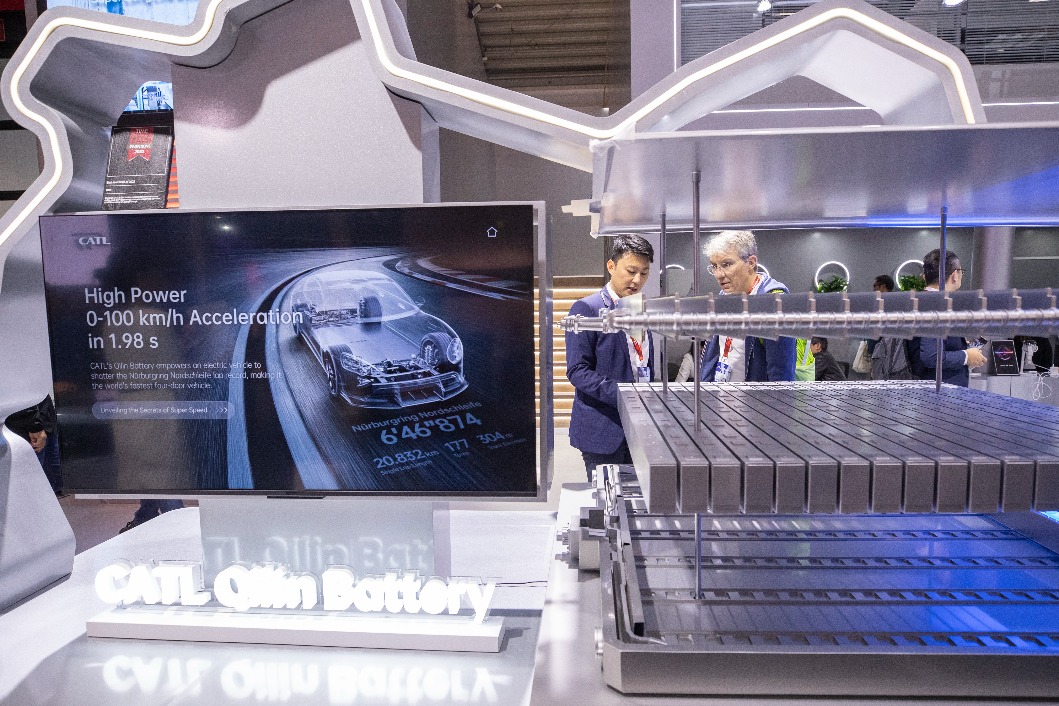The big leap

Domestic players aim for slice of high-end car market with new product launches
In China, the automobile industry is galloping at breakneck speed, making it one of the most compelling sectors for investment. Such is the market potential that virtually everyone in the automobile industry wants to make and sell cars in China. While the industry has mostly been dominated by the global biggies, there are signs now that the lesser-known players are ready to take center stage in a fiercely competitive market where the right pricing and positioning is the key for better returns.
The emergence of the lesser-known brands is not something new. Signs of it were visible at an automobile exhibition in Beijing last year, where a slew of Chinese brands unveiled plans to tap the high-end segment of the market.
Local companies showcased nearly 150 self-developed variants and most of them had independent intellectual property rights. What was surprising was that a significant chunk of the new models from these companies were clean energy vehicles.
Under the banner, "Dream, Self-Improvement and Going Beyond", the weeklong expo was probably China's first self-developed car show and also had the support of several key government departments. It also got backing from the China-Europe Association for Technical & Economic Cooperation.
What set that particular auto expo apart from the scores of other events in China is that it was probably the first time that local players were making such a big splash in a milieu often dominated by marquee names such as GM, Volkswagen, Ford, Toyota or Mercedes-Benz.
Much of the action at that event was centered on the high-end sedan market in China, with several local companies announcing plans for new launches.
One of the reasons why the action is heating up in the high-end sedan market could be traced to the changing consumer preferences and stringent traffic regulations in major cities.
Dong Yang, secretary-general of the China Association of Automobile Manufacturers (CAAM), says that Chinese companies will continue to make technological strides.
 |
 |
|
|
"I think Chinese brands are still like children, while foreign brands are like adults," he says. "You can say that an adult is more powerful than a child, but will it be so in the future?"
In 2009, the market share of local car manufacturers surpassed 40 percent in the passenger car segment and exceeded more than 45 percent last year, according to the CAAM.
But the highest-selling passenger vehicles have not been sedans, but minivans and small budget cars. This year the focus will shift to high-end models, says Jia Xinguang, an auto analyst.
"The challenge is to create top-quality products and build new brands in a fiercely competitive market," he says.
Among the local brands, Geely Automotive Holdings perhaps has a unique advantage. Its purchase of Swedish car brand Volvo last year has close parallels in its Ningbo declaration of 2007 wherein it decided to move up the value-chain by making high-end cars.
Geely has created three sub brands, Global Eagle, Englon and Emgrand, with the latter being its top-end model.
By sewing up the Volvo deal, Geely not only got the rights for the Volvo brand, but also gained access to some of the best automotive safety technologies in the world.
Geely is now phasing out its 30,000-yuan (3,276 euros) cars and moving up the ladder with its Emgrand series. Cars in this series are priced upwards of 100,000 yuan, with the top-end model selling at around 160,000 yuan.
Geely Chairman Li Shufu has recently indicated that Geely will launch as many as 42 new models over the next three years across various segments.
Jia, however, says that despite the significant advances made by Geely, it has not been able to make an impact with its new models.
"Building a brand is not just about selling cars, but more related to quality and service," he says. "It might take 10 years for Geely to build a high-end brand or even longer. It has to be patient and careful because its high-end brand reputation can suffer if it does not pay attention to details."
Like Geely, Chery Automobile is another homegrown brand, which is dreaming big. The company has made a mark for itself in the budget car segment with its QQ sub-compacts priced around 25,000 yuan. Recently the company entered the upper tiers of the auto market with its Rely sedans priced at around 143,000 yuan.
Ma Deji, vice-president of Chery Automobile, feels that it would take some time for Chery to establish its presence in the high-end market, as it does not have any tie-ups or joint ventures with foreign companies.
"It is hard to build a high-end image because we don't have a successful example to follow," Ma says.
At the same time, Ma admits that it would not be easy to change consumer perception overnight. "What we need is time. We have a track record of only 13 years, whereas brands like Mercedes-Benz and BMW have decades of experience. Despite the short history, our products have a good reputation in the market," he says.
Admitting that domestic companies are shifting gears, Ma says, "the car industry is like the home appliance industry. First we import, then we assemble spare parts for foreign companies and finally produce our own brands".
Today's Top News
- Targeted action plan to unleash consumption momentum
- Separatist plans of Lai slammed
- Sinologists help to bridge civilizations
- HK unveils sweeping steps after huge blaze
- China releases white paper on arms control
- China blasts new remarks by Japan's prime minister on Taiwan's legal status































